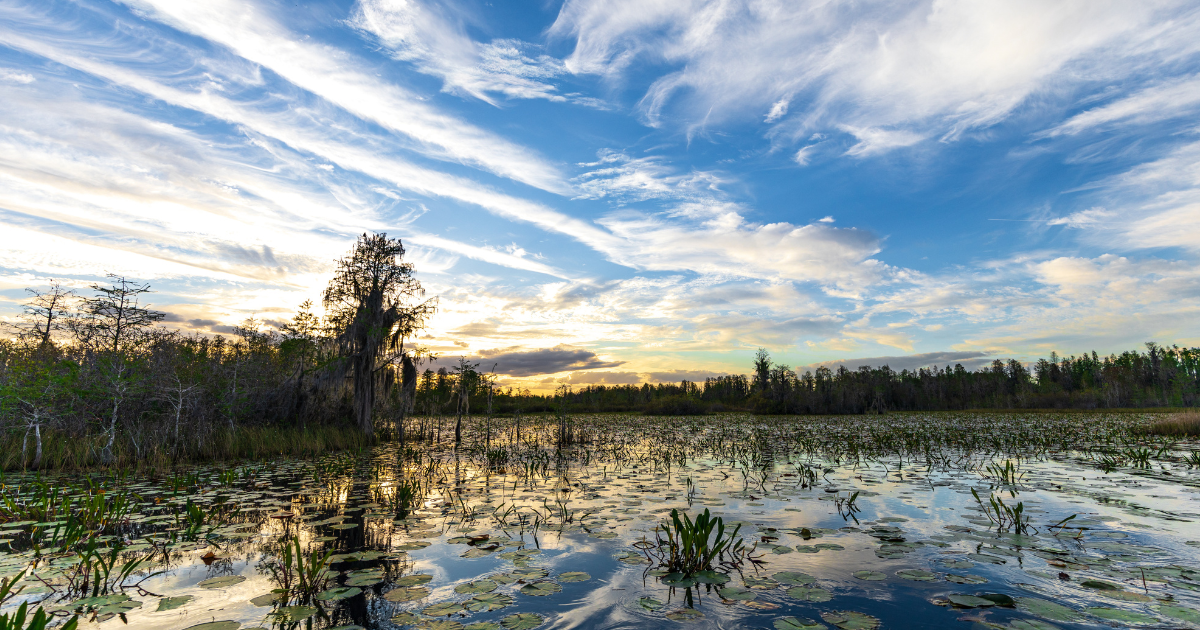If Georgia Wants to Protect the Okefenokee, It Must Start by Supporting Its Stewards
By Scott Jones, CEO, Forest Landowners Association
In response to “Okefenokee Swamp isn’t out of the woods yet” by Josh Marks, June 29, 2025, in the Atlanta Journal Constitution
Georgia’s Okefenokee Swamp is a national treasure—but its greatest defenders are not politicians, environmental activists, or Atlanta attorneys. They are the family forest landowners who’ve spent generations caring for the land that borders it.
Families like the Hopkins, who have lived and worked on the edge of the Okefenokee for over a century, exemplify this quiet, committed stewardship. Through Toledo Manufacturing—a family-run business owned by several families, including the Hopkins—CEO Joe Hopkins, his nephew Drew Jones, and registered forester Chris Gowen have worked to manage these forests responsibly and sustainably.
Some of Toledo’s property sits on Trail Ridge, the ancient geologic formation that helps define the swamp’s boundary. For generations, these families have done more than manage timber—they’ve protected the swamp itself.
Hopkins didn’t need legislation to tell him the Okefenokee matters—his family had been protecting it for decades. Toledo’s forest management practices—including prescribed burns, selective harvesting, and invasive species control—have created a healthy buffer between the swamp and threats like wildfire and erosion. During the massive fires of 2007 and 2011, it was landowners like Hopkins who helped hold the line, opening their private roads and deploying their equipment to support firefighting efforts.
This is the reality of forest stewardship in rural Georgia: it’s physical, it’s costly, and it’s essential. The swamp is healthier today because family forest landowners made quiet choices to care for their land the right way.
The forests surrounding the Okefenokee aren’t just scenic—they are functional. They filter drinking water, capture carbon, support wildlife, and fuel local economies. In southeast Georgia, forestry is one of the largest employers. Private landowners create the jobs, provide the habitat, and preserve the open space that keeps Georgia’s rural communities alive.
And yet these same landowners are increasingly pushed to the brink by inconsistent policies, rising taxes, collapsing timber markets, and burdensome regulation. The land that provides so much public benefit is shouldered by private families, without compensation, and often without recognition.
Without these families, thousands of jobs would be lost, the water Georgians drink and the air they breathe would be dirtier, and threatened and endangered wildlife populations would be lost.
While Toledo Manufacturing had not considered selling its land for mining, other surrounding landowners did. But it was not an easy decision, none of them wanted to sell their land to Twin Pines, however, when every other option had been exhausted and taxes rose, markets shrank, and policymakers ignored calls for reform—these landowners made a difficult decision to sell a portion of land to Twin Pines Minerals. Hopkins, a strong proponent of private property rights, fought to allow these landowners to be able to make their own decisions when it came to property use, even though he had no land in the game.
“The process was long and ugly,” Hopkins said. “Luckily, in the end, the property was purchased at fair-market value by The Conservation Fund, which will continue to keep the land in timber.”
The irony is glaring. When families like the Hopkins manage the land, invest in its care, and pass it down—Georgia offers no reward. But the moment they make a last-resort decision to remain financially afloat, they are vilified and targeted with reactionary legislation.
If your plan to “save” the Okefenokee doesn’t include the people who actually live next to it, it’s not a real plan—it’s a press release. Good intentions mean little if they trample on private property rights and alienate those doing the hard work on the ground.
We should be empowering forest landowners, not punishing them. That starts with:
- Tax reform that incentivizes sustainable land management,
- Funding for wildfire mitigation, reforestation, and habitat restoration,
- And protecting the right of landowners to make decisions about their property within the bounds of science and due process.
Toledo Manufacturing is not the exception—it is the example. And the best thing Georgia can do to protect the Okefenokee is to protect and respect the families who have already been doing just that for over a hundred years.
